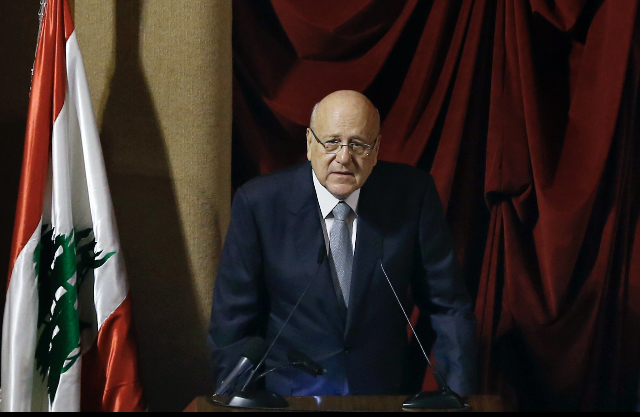Following a parliamentary session on Monday, 85 Lebanese lawmakers voted for Prime Minister Najib Mikati’s cabinet while 15 voted against it.
The remaining 17 MPs were not present during the voting session, which was hit by a power outage and lasted for more than seven hours.
Mikati has drawn up a policy program aimed at reviving talks with the International Monetary Fund (IMF) on a bailout package to purportedly rescue the debt-ridden country from its worst economic meltdown in history.
The program also involves controversial reforms that donors want to see before they unlock foreign assistance.
“From the heart of the suffering of Beirut … our cabinet was born to light a candle in this hopeless darkness,” Mikati said in his speech.
“We will immediately begin the reform file. We have actually begun discussions with the International Monetary Fund… This issue is not an option but a mandatory passageway that must succeed in order to serve as the first foundation toward salvation and the right way for Lebanon’s revival,” he added.
Referring to the ailing electricity sector, the Lebanese premier underlined the need for raising electricity tariffs and increasing supply and production.
He further promised that the government would thrash out a plan to restructure the banking sector and revitalize the economy saddled with over $90 billion in public debt.
Paralyzed by severe fuel shortages and wide-scale power cuts, Lebanon has been mired since late 2019 in a deep financial crisis that has caused the Lebanese pound to lose around 90 percent of its value to the dollar.
The US has exacerbated the crisis by imposing a siege on Lebanon in a bid to force the formation of a Western-friendly administration there.
Mikati also underscored his government would seek to boost Lebanon’s international relations and appealed to “brotherly Arab countries” to help Beirut out of its current crisis.
He stressed that “Lebanese citizens have the right to oppose Israel’s occupation, and to respond to its attacks”.
Mikati also pledged that his government would continue to work to liberate territories occupied by Israel.
The new administration, the prime minister added, supports the United Nations Interim Force in Lebanon (UNIFIL) and will demand that it “end Israel’s invasion of Lebanese sovereignty — land, sea, and air”.
Mikati further said he plans to resume indirect talks with Israel on the demarcation of Lebanon’s southern maritime border with the occupied Palestinian territories.
Lebanon fought off two Israeli wars in 2000 and 2006. On both occasions, battleground contribution by its Hezbollah resistance movement proved an indispensable asset, forcing the Israeli military into a retreat.
Lebanon and the occupying regime are technically at war since the latter has kept the Arab country’s Shebaa Farms under its occupation since 1967.
